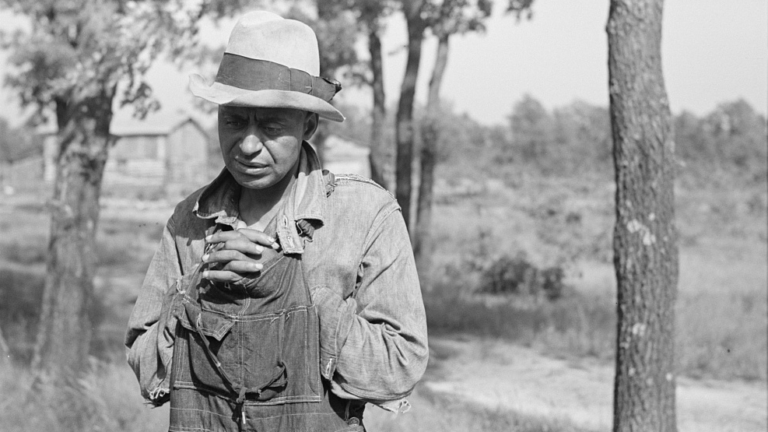For the first time, researchers have assigned a value to the Black-owned farmland lost over the past century.
Throughout the 20th century, Black farmers in the U.S. were forced to give up millions of acres of farmland. A new study puts a number to that loss — $326 billion.
Discriminatory lending practices at the federal level, particularly at the U.S. Department of Agriculture, left many Black farmers unable to maintain their land, forcing them to give it up. That, along with discriminatory heirs’ property laws, contributed to the massive economic loss.
“That’s a large number,” said Dania Francis, professor of economics at University of Massachusetts-Boston and lead researcher. “That’s the size of the GDP of Hong Kong.”
To arrive at their estimate, researchers used nominal land values at the time and compounded those values up to 2020. According to Francis, the figure is likely a conservative estimate, as it doesn’t take into account any multiplier effects for how the land might have been reinvested.
The economic loss over the past century to Black farmers has contributed to the racial wealth gap we see in this country today, Francis said.
“During a time in this country where the middle class was growing and wealth was rapidly accumulating, these farmers didn’t have that opportunity because their source of wealth was taken away,” she said.
Many farmers of color in the Midwest have seen this land loss happen in real time.
Barbara Norman, a blueberry farmer in Covert, Michigan said she’s seen some farms get foreclosed upon and others simply sold off after becoming economically unsustainable.
“It’s a shame,” she said.
Her own farm has been in her family for three generations, which she said has provided her with a financial safety net.
“Money is not as much wealth to me as my land is,” she said. “Land, to me, is wealth.”
In 2021, President Joe Biden promised to erase $4 billion worth of debt to socially disadvantaged farmers who have been impacted by the USDA’s discriminatory lending practices. However, a swarm of lawsuits from banks and white farmers alleging discrimination against them has stagnated the debt relief in court.
Francis said her study provides empirical evidence demonstrating how much wealth Black communities have lost. She said it furthers the case for reparations.
“If we think of this as reflective of government involvement in the land loss, then there might be an argument for reparations,” she said.
However, she said she agrees with the theory that reparations should be determined by the current racial wealth gap in the U.S. — which is about $11 trillion. That makes the $326 billion seem like a “drop in the bucket,” she said.
Next, her team hopes to determine a more accurate estimate of the economic loss to Black farmers by taking into account multiplying factors. Francis said she also plans to examine what became of all the Black-owned farmland in the U.S.
“Where did that land go?” she said. “Who benefited from the loss of the land?”
Follow Dana on Twitter @DanaHCronin
This story was produced in partnership with Harvest Public Media, a collaboration of public media newsrooms in the Midwest. It reports on food systems, agriculture and rural issues. Follow Harvest on Twitter: @HarvestPM.
9(MDM5MjE5NTg1MDE1Mjk1MTM5NjlkMzI1ZQ000))

